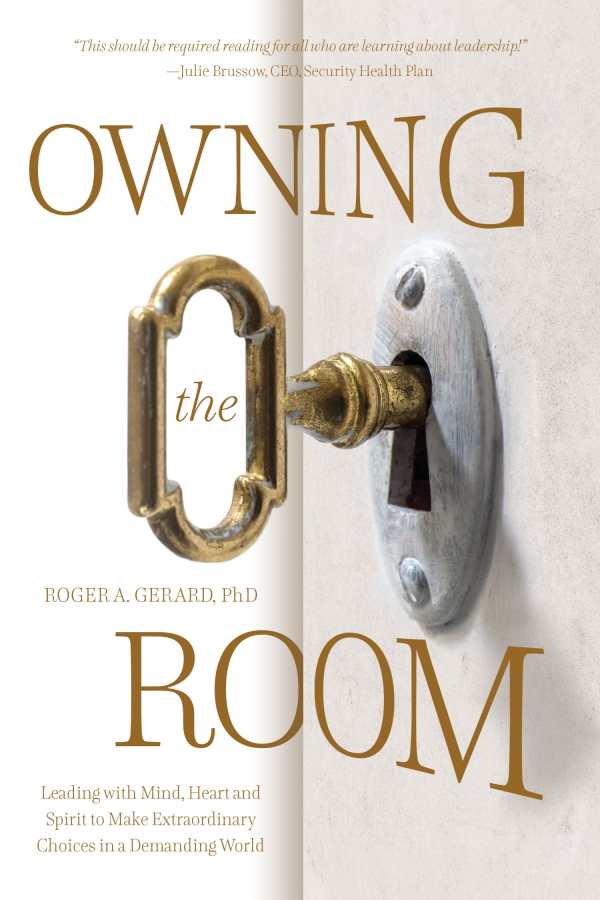Owning the Room
One Challenge at a Time: Leading with Mind, Heart and Spirit to Make Extraordinary Choices in a Demanding World
Owning the Room is a self-help work for developing leaders that’s concerned with management and methods for success.
Roger A. Gerard’s Owning the Room suggests means for developing dynamic leadership skills and running companies in optimal ways.
Drawing upon forty-five years of professional experience, this is a guide to getting the most out of businesses and their teams. Its is a holistic view of leadership, with enlightened suggestions that look far ahead and stress focusing on tangible results. Its communal approach prizes employee engagement, rejecting hierarchies. Topical chapters cover action, culture, and humility over ego, sectioned in logical ways and bound together by an overarching philosophy of leadership that asserts that it should be directed by empathy, awareness, and knowledge, placing professional and personal development on parallel tracks.
The bulk of the book is devoted to cultivating techniques for “employing the mind, heart, and spirit to accomplish intention,” so as to get the most out of oneself and one’s employees. Chapters are prefaced with summaries of their key points, helping to make the information that follows digestible. Each ends with action items on topics like areas of responsibility, challenges to overcome, and ambitious goals to pursue.
Rejecting the notion that companies’ cultures are changed via top-down edicts, the text emphasizes experiential leadership grounded in practice. It is prone to reinforcement through repetition, bullet points, and summaries, and lists best practices as instruction while dispensing practical tips on how to be a credible leader. It encourages reflection and journaling on its leadership practices, prioritizing self-discovery. Here, extraordinary leaders are those who commit themselves in full to their enterprises, are productive, and treat their people with empathy and respect.
Gerard’s cited experiences make the work credible, and his assertion that self-knowledge is a crucial precursor to successful leadership is an original touch. The book takes on conventional leadership wisdom well, deconstructing clichés about rewards systems, buy-ins, and other familiar tactics. Its insights challenge and reframe dominant perspectives, including that many new managers “are masters in their professional disciplines, but amateurs as leaders” and that leaders are forged in the heat of experience. In support of its work, it includes anecdotes that suggest that true managerial knowledge requires time and patience to build. However, some such anecdotes have moralizing tones, and the book’s frequent pronouncements on broad subjects, including passion, humility, and destiny, are, at times, trite.
Owning the Room is a self-help work for developing leaders that’s concerned with management and methods for success.
Reviewed by
Joseph S. Pete
Disclosure: This article is not an endorsement, but a review. The publisher of this book provided free copies of the book and paid a small fee to have their book reviewed by a professional reviewer. Foreword Reviews and Clarion Reviews make no guarantee that the publisher will receive a positive review. Foreword Magazine, Inc. is disclosing this in accordance with the Federal Trade Commission’s 16 CFR, Part 255.

